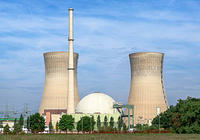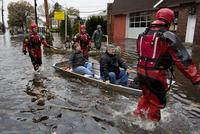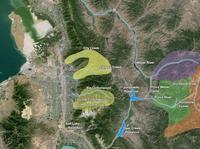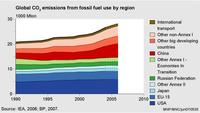-
Pyreos, ultra‐low power consumption IR sensor specialist, secures $4 million investment
Edinburgh, Scotland-based Pyreos Limited, a specialist in ultra‐low power consumption infrared sensor technology, the other day announced plans for international expansion after securing a further funding round of $4 million. It is possible to use Pyreos sensor arrays in many applications, among them border security, where they can identify human movement at distances of several kilometers.
-
-
Cool technology from DHS
The U.S. Department of Homeland Security (DHS) employs more than 240,000 people in a variety of areas and activities, from border security and aviation to emergency response and cybersecurity, plus everything in between. Many may not be aware of the fact that DHS has also been busy developing some cool, high-tech, life-saving gear to protect people before, during, and following disasters and emergencies.
-
-
Detecting threats in a crowd
Around a military camp situated close to a built-up area there are always people moving about. Scientists at FOI, the Swedish Defense Research Agency, have created a multi-sensor system designed to be able to detect threats by identifying unusual patterns of movement involving individuals or groups.
-
-
Leading climate scientists urge support for nuclear power

Four of the world’s leading climate scientists have urged environmentalists to support the continuing development of nuclear power as one of the ways to reduce fossil fuel pollution, saying wind and solar energy will not be enough to head off dangerous acceleration of global warming. This is an important point because environmentalists agree that global warming is a threat to ecosystems and humans, but many of the same environmentalists oppose nuclear power, arguing that new forms of renewable energy will be sufficient to meet the world’s need for power within the next few decades.
-
-
Planet’s arable land rapidly degrading

Great civilizations have fallen because they failed to prevent the degradation of the soils on which they were founded. The modern world could suffer the same fate. A new study describes how the productivity of many lands has been dramatically reduced as a result of soil erosion, accumulation of salinity, and nutrient depletion.
-
-
Perspectives on terrorism and responses to it
The Strategic Multi-Layer Assessment office within the Office of the Secretary of Defense has published a new white paper, in Looking Back, Looking Forward: Perspectives on Terrorism and Responses to It Strategic Multi-layer Assessment, which offers discussions of different perspectives of terrorism and approaches to understanding the phenomenon. The papers cover topics ranging from strategic and adaptive considerations of terrorism to analytical considerations.
-
-
Resources on disaster preparedness, resilience

One year after Superstorm Sandy hit the eastern United States, local, state, and federal agencies as well as community groups and businesses are working to strengthen the U.S.s resilience to future disasters. A National Research Council (NRC) has issues a series of studies and reports, and has put together workshops and study groups, which should advance the national conversation on preparedness and resilience.
-
-
Rising temperatures threaten Salt Lake City’s water supply

In an example of the challenges water-strapped Western cities will face in a warming world, new research shows that every degree Fahrenheit of warming in the Salt Lake City region could mean a 1.8 to 6.5 percent drop in the annual flow of streams that provide water to the city. By midcentury, warming Western temperatures may mean that some of the creeks and streams that help slake Salt Lake City’s thirst will dry up several weeks earlier in the summer and fall.
-
-
Bill bolsters DHS’s cybersecurity workforce
A House panel recently approved HR 3107, a bill aiming to bolster DHS’s cybersecurity workforce. The House Homeland Security Committeeamended the Homeland Security Cybersecurity Boots-on-the-Ground Actto expand DHS’ outreach to candidates for IT security jobs by creating a tuition-for-work fellowship and a program to recruit military veterans and unemployed IT specialists for DHS employment.
-
-
U.S. policy should encourage foreign Ph.D. students to stay: study

Attracting more talented foreign students to study at U.S. universities and encouraging them to launch entrepreneurial ventures here could help “revitalize innovation and economic growth” in this country, three economists conclude in a new study. The researchers have found that high-performing foreign-born Ph.D. students improve the “creation of knowledge” in U.S. universities. When knowledge is created, it tends to drive entrepreneurial investment and economic growth.
-
-
2012 sees slowdown in the increase in global CO2 emissions

Actual global emissions of carbon dioxide (CO2) reached a new record of 34.5 billion tons in 2012. Yet, the increase in global CO2 emissions in that year slowed down to 1.1 percent, which was less than half the average annual increase of 2.9 percent over the last decade. This is remarkable, as the global economy grew by 3.5 percent. This development signals a shift toward less fossil-fuel-intensive activities, more use of renewable energy, and increased energy saving. Increases in fossil-fuel consumption in 2012 were 2.2 percent for natural gas, 0.9 percent for oil products, and 0.6 percent for coal.
-
-
Improving earthquake early warning systems
Earthquake early warning systems may provide the public with crucial seconds to prepare for severe shaking. For California, a new study suggests upgrading current technology and relocating some seismic stations would improve the warning time, particularly in areas poorly served by the existing network — south of San Francisco Bay Area to north Los Angeles and north of the San Francisco Bay Area.
-
-
Best way to stop a killer asteroid? Form a committee

The United Nations (UN) has adopted several recommendations of a new asteroid defense plan, the first steps in preventing Earth from being struck by an asteroid. The recommendations were a response to an asteroid strike earlier this year in Chelyabinsk, Russia. This object injured thousands and was around seventeen meters across. We have only found 1 percent of these “killer” asteroids, meaning there are hundreds of times more out there than we know of. One of them, sooner or later, will have our name written on it. For a global threat we need a global response, as well as a global share of the blame if it goes wrong.
-
-
Warming will disturb nutrients balance in drylands, affecting food production
Drylands cover about 41 percent of Earth’s land surface and support more than 38 percent of the world’s population. As the world’s population grows, people will increasingly rely on marginal lands — particularly drylands — for production of food, wood and biofuels. Trouble is, an increase in aridity due to global warming will disturb the balance of nutrients in the soil and reduce productivity of the world’s drylands, a landmark study predicts. Increasing aridity is associated with a reduction in carbon and nitrogen in the soil and an increase in phosphorus.
-
-
Where should U.S. radioactive waste be buried?
In the United States, about 70,000 metric tons of spent commercial nuclear fuel are located at more than seventy sites in thirty-five states. Shales and other clay-rich (argillaceous) rocks have never been seriously considered for holding America’s spent nuclear fuel, but it is different overseas. France, Switzerland, and Belgium are planning to put waste in tunnels mined out of shale formations, and Canada, Japan, and the United Kingdom are evaluating the idea.
-
More headlines
The long view
New Technology is Keeping the Skies Safe
DHS S&T Baggage, Cargo, and People Screening (BCP) Program develops state-of-the-art screening solutions to help secure airspace, communities, and borders
Factories First: Winning the Drone War Before It Starts
Wars are won by factories before they are won on the battlefield,Martin C. Feldmann writes, noting that the United States lacks the manufacturing depth for the coming drone age. Rectifying this situation “will take far more than procurement tweaks,” Feldmann writes. “It demands a national-level, wartime-scale industrial mobilization.”
How Artificial General Intelligence Could Affect the Rise and Fall of Nations
By Barry Pavel et al.
Visions for potential AGI futures: A new report from RAND aims to stimulate thinking among policymakers about possible impacts of the development of artificial general intelligence (AGI) on geopolitics and the world order.
Smaller Nuclear Reactors Spark Renewed Interest in a Once-Shunned Energy Source
By David Montgomery
In the past two years, half the states have taken action to promote nuclear power, from creating nuclear task forces to integrating nuclear into long-term energy plans.
Keeping the Lights on with Nuclear Waste: Radiochemistry Transforms Nuclear Waste into Strategic Materials
By John Domol
How UNLV radiochemistry is pioneering the future of energy in the Southwest by salvaging strategic materials from nuclear dumps –and making it safe.
Model Predicts Long-Term Effects of Nuclear Waste on Underground Disposal Systems
By Zach Winn
The simulations matched results from an underground lab experiment in Switzerland, suggesting modeling could be used to validate the safety of nuclear disposal sites.
